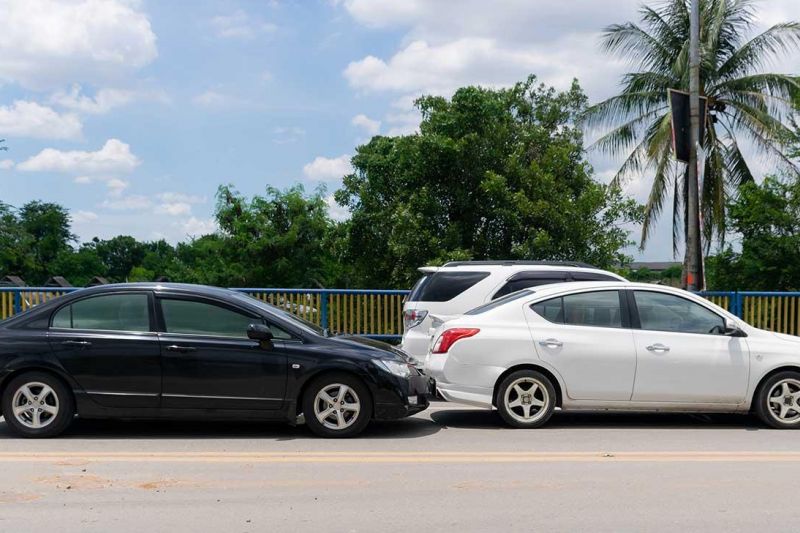You may have done it to someone. You may have had it done to you. But did you know that to brake-check someone who is tailgating you could land you a big fine and possible demerit points? Or, worse – it could cost you your licence.
- Tapping your brake pedal to warn another road user not to tailgate is a chargeable offence
- You could face fines in some jurisdictions, while others may impose stricter penalties
- Some states could imprison you if your driving is considered that dangerous
For the unaware, brake-checking is where a person driving in front of another vehicle taps their brakes to warn the follower to back off.
It is a common practice, unfortunately, because tailgating (where a driver drives so close to the vehicle ahead that it may be dangerous) is one of the worst habits of city drivers in Australia.
One need only experience a morning or afternoon peak hour commute in Sydney, Brisbane, Melbourne, Perth or even Canberra to see that safe following distances are some of the least-adhered to rules of the road.
But that doesn’t mean that you should hit your brakes to warn the driver behind you to back off. Even if they are breaking the law by following too closely behind you, you cannot take the law into your own hands – because if you do, you could be found to be driving with due care, or driving dangerously.
Look, you’re not allowed to obstruct the path of other road users (Australian Road Rules 2014, reg 125), and nor are you allowed to drive behind another vehicle too closely to stop safely (Australian Road Rules 2014, reg 126). But there’s no specific law around brake-checking another road user to prevent them from tailgating.
A Queensland police officer we spoke to suggested that, at minimum, someone who is found to brake-check another road user could be charged with careless driving, or more specifically driving without due care or attention. According to the state’s Transport Operations (Road Use Management) Act 1995, that could in turn lead to a big fine in court ($3096) or even six months imprisonment.
If the act is considered to be an aggravated, and therefore dangerous, driving behaviour, the penalty could be even bigger, up to $30,000 in fines, or three years imprisonment if you’re sober (more if you’re under the influence of any substance, and – rightfully – even more if it leads to injury or death).
Those are some clear-cut reasons not to brake-check other road users, but the laws are open to interpretation, and they vary across jurisdictions.
In Victoria, you could be charged with “careless driving of a motor vehicle by a full licence holder,” which may result in a $397 fine and 3 demerits.
New South Wales police would likely book you for “furious and reckless driving”. Offences under which could include behaviour that:
- Seriously endangers other road users and community members
- Creates an obvious and serious risk of causing physical injury to other road users
- Creates an obvious and serious risk of causing substantial property damage
The state may impose a maximum fine of $2200 for a first offence, 12 months loss of licence at a minimum, and up to nine months prison time
In Tasmania, under the Road Rules 2019 – regulation 367, driving without due care: (1) A person must not drive without due care and attention. The fine for that is up to $1810. While there’s a second, more lenient law that may apply:
“(2) A person must not drive without reasonable consideration for other road users,” and failure to abide by that could result in a maximum fine of $905. It is more likely that an on-the-spot fine of $195 and 3 demerits may be imposed.
South Australia puts this behaviour under the banner of “hoon driving” or “driving with attitude”, and that means that “driving recklessly or at a speed or in a manner dangerous to the public” could lead to 6 demerits and will see a court-imposed financial penalty.
These are just some of the interpretations of rulings around the nation. The message seems simple. Don’t brake-check other drivers – just move out of their way when you can.
Not intended as legal advice. Check with the relevant roads authority in your state or territory.

